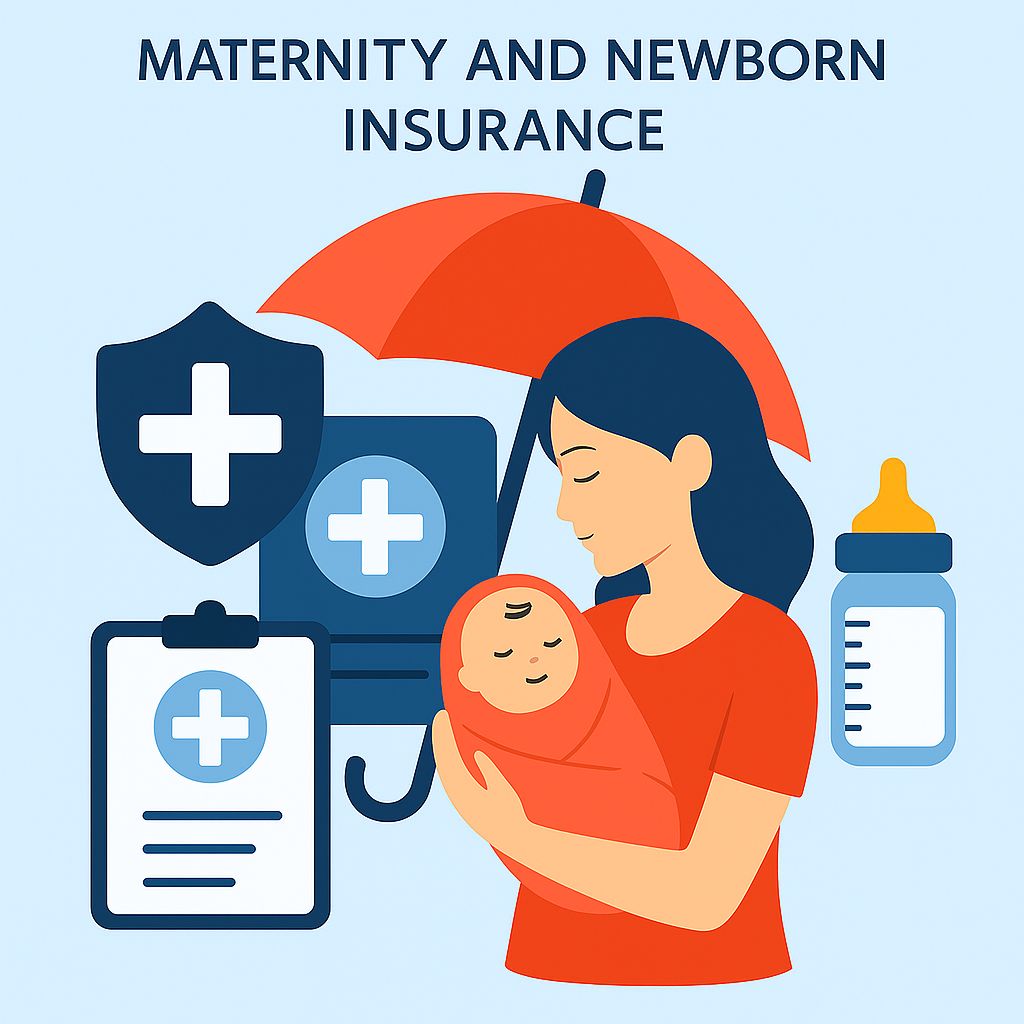Maternity and newborn insurance covers medical expenses for mothers and babies, ensuring financial security during childbirth and early care.
What is Maternity and Newborn Insurance?
Maternity and newborn insurance is a health insurance policy designed to cover expenses related to pregnancy, childbirth, and postnatal care. It typically includes coverage for hospital stays, doctor consultations, prenatal and postnatal care, and sometimes even newborn vaccinations.
Importance of Maternity Insurance
- Financial Protection: Covers high medical costs associated with pregnancy and childbirth.
- Comprehensive Care: Includes prenatal check-ups, hospitalization, and neonatal care.
- Peace of Mind: Reduces stress by providing financial security during a critical time.
- Access to Quality Healthcare: Ensures that expecting mothers receive the best possible medical care.
Key Aspects of Maternity and Newborn Insurance
1. Coverage Details
- Hospitalization Costs: Covers expenses for delivery, cesarean sections, and related medical procedures.
- Prenatal and Postnatal Care: Ensures medical check-ups, ultrasounds, and consultations are covered.
- Newborn Care: Includes vaccinations, screenings, and neonatal intensive care if needed.
- Complications and Emergencies: Covers any unexpected medical conditions during pregnancy or delivery.
2. Waiting Periods
Most maternity insurance policies come with a waiting period of 9 to 24 months. It’s advisable to plan ahead and purchase the policy well before pregnancy.
3. Exclusions
Common exclusions include:
- Fertility treatments
- Pre-existing pregnancy
- Experimental medical procedures
Benefits of Maternity and Newborn Insurance
- Reduces Financial Burden – Covers expensive delivery and medical costs.
- Covers Neonatal Expenses – Ensures the baby receives necessary medical attention.
- Access to Quality Hospitals – Provides access to top maternity hospitals and specialists.
- Cashless Treatment – Many policies offer cashless hospitalization at network hospitals.
- Comprehensive Coverage – Includes hospitalization, medication, and follow-up treatments.
How to Choose the Right Maternity Insurance Plan
Step 1: Assess Your Needs
- Determine estimated medical costs.
- Check for maternity benefits in existing health insurance.
Step 2: Compare Policies
- Look for plans with shorter waiting periods.
- Compare premium costs and coverage details.
Step 3: Check Hospital Network
- Ensure the insurance provider has a wide hospital network.
- Opt for cashless hospitalization facilities.
Step 4: Read Policy Terms
- Understand inclusions, exclusions, and claim procedures.
- Check coverage limits and sub-limits.
Common Mistakes to Avoid
- Not Planning Early: Buy maternity insurance well before conception due to waiting periods.
- Ignoring Exclusions: Read policy details to avoid surprises.
- Choosing Low Coverage: Ensure adequate financial protection for both mother and baby.
- Not Checking Hospital Network: Opt for a plan with hospitals near your location.
Recommended Resources and Tools
- World Health Organization (WHO) – Maternal Health
- WebMD – Pregnancy and Newborn Care
- CDC – Infant and Maternal Health
Future Trends in Maternity Insurance
- More Inclusive Plans – Insurers are expanding coverage for high-risk pregnancies.
- Digital Claim Processing – Faster and easier insurance claims via online platforms.
- Telemedicine Services – Virtual doctor consultations included in policies.
- Customized Plans – Insurers offer tailored plans based on individual health needs.
Frequently Asked Questions (FAQs)
1. What is the ideal time to buy maternity insurance?
It is best to buy maternity insurance at least 1-2 years before planning pregnancy due to waiting periods.
2. Does maternity insurance cover C-sections?
Yes, most plans cover both normal and cesarean deliveries.
3. Are newborn vaccinations covered under maternity insurance?
Some policies include vaccinations, while others may offer it as an add-on.
4. Can I get maternity insurance if I am already pregnant?
Most insurers do not cover pre-existing pregnancies. It’s essential to buy the policy beforehand.
5. What happens if my baby needs intensive care?
Many plans cover neonatal ICU expenses, but it’s best to check policy details before purchasing.
Conclusion
Maternity and newborn insurance provides financial security and ensures the best medical care for both mother and baby. Planning ahead and choosing the right insurance plan can make a significant difference in managing pregnancy and childbirth expenses.
Looking for the best maternity insurance? Compare plans today and secure your family’s future!



